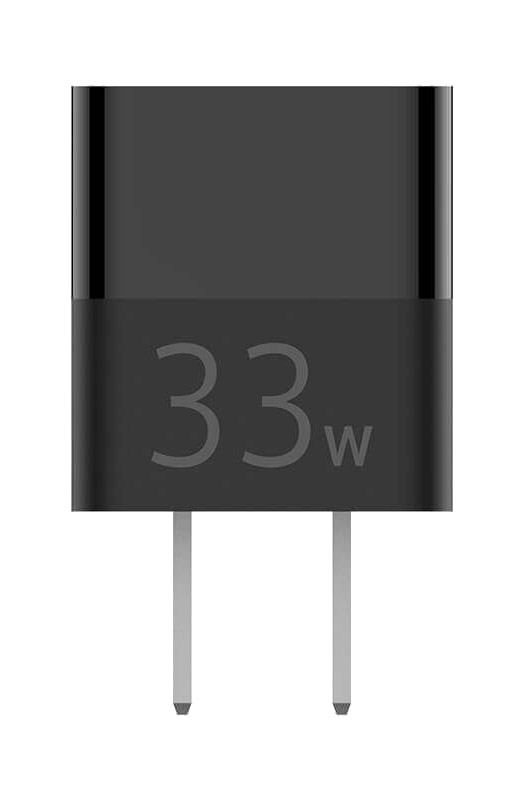Installing a solar panel system can substantially reduce your energy bill over time, but that is not the only way that a solar power system can lessen the burden on your finances.
A variety of tax credits and rebates are available to homeowners who elect to invest in renewable energy production. You may qualify for rebates on federal, state, and local levels if you install a system that meets specific criteria.
Understanding Tax Credits
Tax credits are a valuable financial tool that allows you to lower your taxable income and, consequently, your annual tax bill. An income tax credit lowers the amount of due income tax or increases your refund by the same amount. Exemptions and deductions are not credits.
Solar Tax Credit Explained
Federal tax credits are available to those who decide to use solar panels to produce energy. You may qualify for a tax credit that will decrease the amount of money you owe in taxes.
In 2006, Congress enacted the Solar Investment Tax Credit (ITC). Since then, the solar energy industry in the United States has expanded at an annual rate of more than 50% over the previous decade, representing a growth rate of more than 10,000%.
Hundreds of thousands of jobs have been generated, and the solar industry has invested billions of dollars in the American economy.
A Brief History of Solar Tax Credits
Investment tax credits for renewable energy sources were established by the federal government under George W. Bush's Energy Policy Act of 2005. Almost all homeowners take advantage of this deduction by installing solar panels. Originally set to expire in 2007, the bill has been extended and revised to allow homeowners to receive a tax credit through 2021.
The tax credit for new systems will decrease from 50% of the overall cost in 2020 to 22% in 2021 and to 0% in 2022. Homeowners who purchased a solar panel system before December 31, 2020, and put it to work before the start of 2024, can benefit from the 26% credit.
How to Determine Eligibility for Solar Tax Credits?
You can claim the Investment Tax Credit (ITC) if you install a brand-new solar power system and begin using it anytime between the start of 2006 and the end of 2023. The ITC will end in 2024, unless Congress extends it.
To be eligible for the ITC, you must fulfill the following requirements:
- You should be the outright owner of the solar panel system. (Leased systems are ineligible for the ITC.)
- Your system should be located or installed within the United States.
- Your solar panel system should be situated at your secondary or primary US residence, or for a community, off-site solar project.
Which Solar Energy Systems are Eligible for the ITC?
To qualify for the Federal Solar Tax Credit, a homeowner must install a solar energy system that generates electricity for the home, such as a Solar PV (Photovoltaic) system or a Solar Water Heater. The Federal Solar Tax Credit applies to both Solar PV and Water Heater systems because they both use the sun's light to produce electricity and heat water, respectively.
Solar PV Systems
Photovoltaic (PV) panels, also known as Solar Panels, are flat structures that look like windows and convert the energy in the sun's rays (in the form of photons) into electricity. Solar panels, which come in thin-film, polycrystalline, and monocrystalline varieties, are an excellent way to cut down on your monthly electricity costs.
Solar Water Heaters
Using a Solar Water Heater is an affordable option for producing hot water at home. These Water Heaters utilize the sun's thermal energy to warm water in a storage tank and Solar Collector installed on your roof.
Calculating the Solar Tax Credit
At this time, the Investment Tax Credit (ITC) can be used to offset 30% of the total cost of the solar installation. This includes the full price of installing a solar power system, including any necessary upgrades, such as electrical or roof work.
Note that not all extra financial incentives will be factored into the total system price. For instance, you may also qualify for rebates from your utility company or the state government, in addition to the federal tax credit. To determine how much tax credit you can expect to receive based on your individual circumstances, it is recommended to consult a tax professional. The most up-to-date data on incentives, along with contact details for each incentive, can be found on the Database of State Incentives for Renewables and Efficiency website.
To calculate your Solar Tax Credit amount, you need to start by calculating the total cost of your Solar Panel system. This would include the purchase price of the system, along with any home renovations/improvement costs and installation costs. From this amount, you must deduct any extra state credits or incentives. The resulting number would be your gross Solar Panel cost.
Multiply this gross cost by 26% to calculate the amount of tax credit you are eligible for.
Keep in mind that the ITC is not the same thing as a refund. If you file your taxes and are due a refund, you will receive your money after the next tax season ends. On the other hand, tax credits are monetary amounts (gross cost times 26%, in this case) that can be applied to your current or future tax bill.
Claiming the Solar Tax Credit
Form 5695 is the IRS form used to make a Solar Tax Credit claim. Homeowners can deduct the Section 25D residential ITC from their income taxes. If your tax credit is greater than the amount you can deduct, the excess will carry over for a maximum of five years. (In certain tax situations, the amount is rolled over into the tax refund.)
State-Based Solar Incentives
While the federal ITC is a great incentive for homeowners to go solar, several states, as well as Puerto Rico, also have their own solar incentives. Tax credits, rebates, and certificates for renewable energy are some of the most common of these incentives, though they vary by state. States like California, Texas, Minnesota, and New York offer many financial incentives for switching to solar energy.
These solar rebates and tax credits can vary widely from state to state. Talk to your installer and check the Database of State Incentives for Renewables & Efficiency to learn about specific solar financial incentives offered in your state.
State-Based Tax Credits
Similar to the federal ITC, state tax credits reduce the amount of tax you owe to the state government. The specific amounts vary widely between states, but they should not affect the federal tax credits you're already entitled to.
State-Based Government Rebates
Your solar energy system may be eligible for immediate rebates in some states. You should look into rebates offered by your state to take advantage of the incentive before the money runs out, as they are generally only offered for limited time periods. Solar energy systems may qualify for a rebate of 10% to 20% from the state.
SRECs
Other solar incentives at the state level include Solar Renewable Energy Certificates (SRECs), also known as Solar Renewable Energy Credits. As a perk for installing and registering your solar system with the relevant state authorities, you will receive SRECs on a periodic basis as they monitor your system's energy output. Your local energy provider (or another buyer) may be interested in purchasing your SRECs. If they are, you will receive a payment that is generally regarded as taxable income.
Additional Incentives
Local Utility Rebate Utility companies in many areas offer rebates or financial incentives to residents who choose to install solar panels on their homes. Solar power systems may be subsidized in two ways: through a monthly rebate incorporated into energy bills or a one-time lump-sum subsidy.
Performance-Based Incentives (PBIs) PBIs are rebates that compensate homeowners on a per-kilowatt-hour basis for the energy generated by their solar systems.
Subsidized Loans Residents can avail of subsidized loans from utility companies, non-government organizations, or their states to finance the installation of their solar panels.
Tax Exemptions After installing a solar energy system, homeowners may become eligible not only for tax credits but also for tax breaks. While solar panels do increase home value, these tax breaks are crucial in keeping tax bills down.
Sales Tax Exemptions Some states offer programs that can exempt solar system buyers from sales taxes. Taking advantage of such programs can help you save a lot of money on your solar panel purchase and installation.
Can Solar Panels Increase Your Home Value?
Installing your own solar system is currently the only guaranteed way to increase the value of your home. The Lawrence Berkeley National Laboratory (LBL) has conducted research showing that homes with solar panels in California sell for higher prices than those without. Homeowners outside of California can still benefit from the "solar premium" that comes with having solar panels installed. It is safe to say that using solar panels will increase the value of your home.
How Much Can Solar Panels Increase Your Home Value?
Based on the Berkeley study mentioned above, each solar watt can increase the value of your home by around $4 in California and around $3 elsewhere in the US. This means that even a modest 2-kilowatt solar system can increase your home's value by ($4 x 2,000) = $8,000 in California and ($3 x 2000) = $6,000 elsewhere in the country.
According to the same study, the value that solar panels add to a home depends largely on utility and installation costs within a specific location.
Using Solar Energy to Reduce Your Tax Bill
You can lower the cost of installing a solar power system by taking advantage of available tax credits and other financial incentives outlined in this guide. Although solar panels may have a high upfront cost, these programs will ultimately save you money in the long run.
If you're interested in portable solar panels to benefit from various federal and state-based financial incentives, we invite you to check out our wide range of solar products. We offer many different types of portable solar panels, generators, and kits, and can assist you in finding a system based on your budget, location, and financial goals.










































